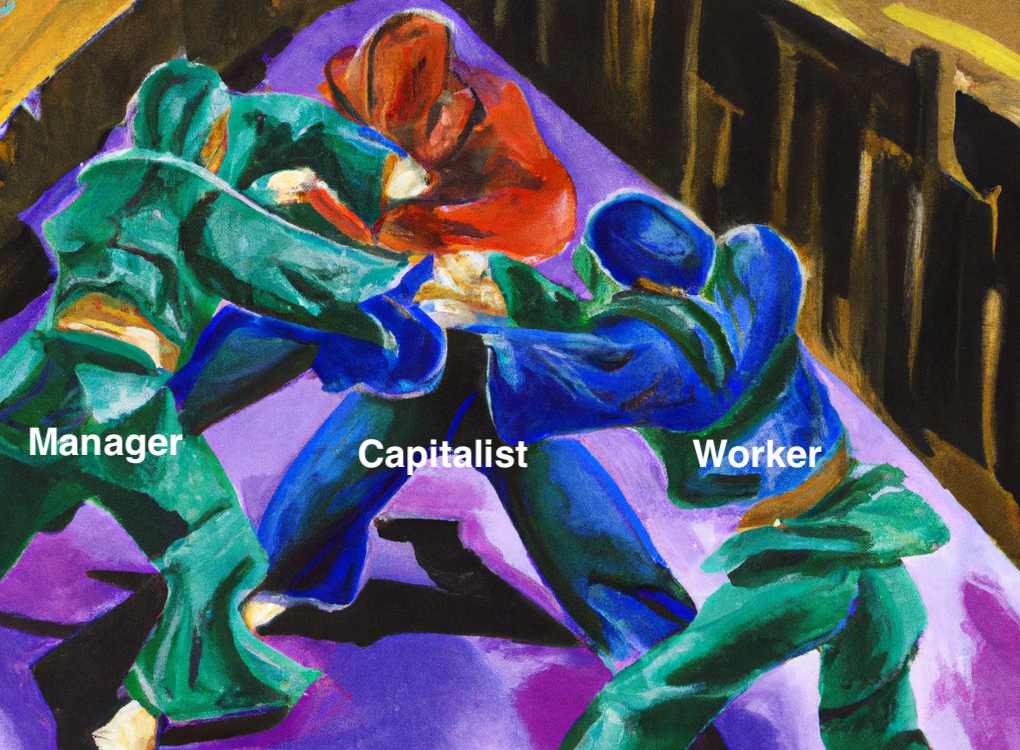by MICHAEL ALBERT

In an influential 1963 pamphlet titled “The Two Souls of Socialism,” the Marxist revolutionary, Hal Draper, said “socialism” encompassed three tendencies. First, it referred to dictatorial political regimes plus central planning (or markets) for allocation, plus corporate workplace organization—as was present in Draper’s day in the Soviet Union, China, etc. Second, for Draper socialism also referred to using government intervention to ameliorate damages caused by core capitalist structures. And third, socialism referred as well to classlessness, wherein all workers and consumers have appropriate participation and decision-making influence regarding their economic lives, rather than many people being subordinate to a few.
Draper saw socialism as a process of change that derives “from above” or a process of change that derives “from below.” A primary issue was if one’s strategy was “from above“ or “from “below,” and not solely the character of the analysis that precedes one’s strategy or the goal that it seeks. However, if we don’t pay close attention to underlying concepts and to overarching goals, how can we accurately judge whether a strategy is “from above” or “from below”?
Draper—and since the article still exists, from now on I will use present tense—says that he wants a “true socialism” and that any effort to attain it will need strategic commitments that melt into a new participatory and self-managing system, and I agree.
If an effort to attain liberation instead establishes a new ruling economic class and an authoritarian state, then having espoused libertarian goals matters little. In other words, the proof is in the pudding and Draper warns that regardless of our hopes, if our means are “from above” we will wind up with authoritarian pudding. If our methods lead to authoritarianism—in economics, in politics, or in other domains—then our efforts will lead to authoritarian results. It is arguably utterly obvious, yet, in 1963 it needed to be said, and once stated it revealed that a central task is to realize what methods do, in fact, generate authoritarian outcomes and what methods, in contrast, generate liberatory ones.
What if we think our methods are in tune with our libertarian aspirations “from below,” and we pursue them, and we wind up with authoritarian results anyhow? We thought our actions accorded with our liberatory aims. It turned out they didn’t. Our judgment wasn’t as good as we thought. This has been true, repeatedly, in history.
Or what if we have quite libertarian means, as best we can see (and let’s say we can see as well as Draper decades ago, or even better), but nonetheless, as we make progress against corporations, against the market, against the state, etc., the only options we can conceive for organizing a new economy and polity take us away from our intended path and toward new hierarchies? In that case, we would have good strategic means that don’t subvert our aspirations, yet we would wind up with bad ends anyhow.
It follows that it isn’t enough to say we have to fight “from below” rather than to fight “from above”—or, more specifically that we have to fight with methods and organization that lead to truly liberated outcomes rather than with methods and organizations that lead to new forms of political and class domination. No, we have to additionally say what that instruction actually means. And it isn’t even enough that we have a good idea what that instruction means, that we believe in, and that we abide, if it turns out that as we make progress we have no idea what forms to construct consistent with our desires, so we fall back into old ways or adopt new ways that despite our best intentions subvert our desires.
Draper says “the heart of socialism from below is its view that socialism can be realized only through the self-emancipation of activized masses in motion, reaching out for freedom with their own hands, mobilized ‘from below’ in a struggle to take charge of their own destiny, as actors … on the stage of history.”`
Okay, that sounds profoundly insightful, to be sure. But it is also true that in the earliest stages of activity some few people will be very aroused and aware, whereas huge numbers of other people will be less so, and even more people will not be politically conscious and active at all. The few will act. The few will take initiative. And yet the few must not wind up dominating those who only later become involved. How is that to happen?
Z for more
